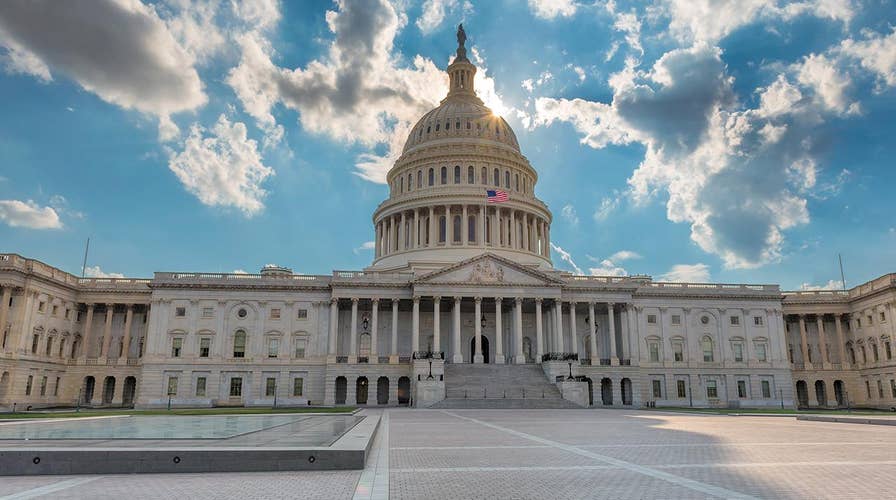Midterm elections: What a divided Congress means for the future
The midterms leave power split in Washington as Democrats retake control of the House of Representatives and Republicans expand Senate majority. But what does a divided Congress mean for the future?
The forecast for Tuesday’s midterm elections called for a blue wave to crash on our shores. What occurred was more of a steady, light blue rain.
What happened?
The Republicans lost the House by a comparatively small margin and gained firmer control of the Senate.
Specifically, with some close races still undecided, Democrats have picked up at least 29 seats in the House. Republicans have picked up at least one seat in the Senate, with races in Arizona and Mississippi remaining undecided.
By comparison to the 29-seat loss suffered Tuesday by President Trump’s Republican Party, President Obama’s Democratic Party lost 63 seats in the in 2010 midterm elections.
In fact, the incumbent president’s party has lost an average of 37 seats in midterm elections since WWII.
While it’s typical for the president’s party to lose seats in the House in midterms, it’s highly unusual for the president’s party to gain seats in the Senate in the same election. It’s only happened three times in the past 104 years – in 1914, 1962 and 1970.
The GOP at long last needs to work diligently toward an alternative to the Affordable Care Act, since health care was the biggest issue at the polls.
Four Senate Democrats lost elections Tuesday after voting against the confirmation of now-Supreme Court Justice Brett Kavanaugh. Their seats in Missouri, Indiana, North Dakota and Florida went to the GOP (however, in Florida Democratic Sen. Bill Nelson has not conceded and is seeking a recount in his Senate race against Republican Gov. Rick Scott).
What’s more, Sen. Joe Manchin, D-W.Va., won re-election Tuesday after voting to confirm Kavanaugh. This could signal that voters saw the Kavanaugh hearings for what they were: a farce and an outrage committed by Democrats. This consequential mistake by the Democrats will endure.
In the states of Texas, Florida and Georgia white women supported Republican candidates for the U.S. Senate and for governor. Some 59 percent supported GOP Sen. Ted Cruz in Texas, 51 percent supported the Republican candidate for governor Ron DeSantis in Florida, and 76 percent voted for the Republican candidate for governor Brian Kemp in Georgia.
Despite the far left’s groundswell for women to rebuke the Republican “patriarchy,” this demographic had a strong turnout in red states for the GOP.
Republicans won governor races in the traditionally blue states of Vermont, Massachusetts, and Maryland. Voters are demonstrating a willingness to consider issues and candidates more thoroughly at the state level, not just their own registered party.
Republicans must also loudly promote their success with two of the country’s most enduring, important issues: the economy and national security. For many Americans, strength in these two areas is substantially more important than anything else that influences their vote. They need to be reminded why.
Democrats saw wins come in for more moderate candidates. Rep. Conor Lamb, D-Pa., was re-elected to the House. Lamb champions bipartisanship and focuses on his legislative agenda, rather than on antagonizing President Trump. In addition, Lamb has resisted endorsing House Minority Leader Nancy Pelosi, D-Calif., for speaker of the House.
Also, four Democrats who are military veterans won House seats.
Exit polls show President Trump’s national approval rating at 44 percent. But in states where it mattered most for Senate races, he had higher support.
Exit polls also show the primary issues for voters were health care at 41 percent, immigration following at 23 percent and the economy at 21 percent.
What does this tell us moving forward?
Democrats are seeing increased support for moderate candidates. However, the party leadership, with the celebration of the media, often positions itself on the far left.
Will the Democrats embrace a migration towards the middle or undervalue this winning trend at their own peril?
On the other side, the GOP at long last needs to work diligently toward an alternative to the Affordable Care Act, since health care was the biggest issue at the polls.
Republicans must also loudly promote their success with two of the country’s most enduring, important issues: the economy and national security. For many Americans, strength in these two areas is substantially more important than anything else that influences their vote. They need to be reminded why.
Despite the advertisement of a fierce blue wave from the left, President Trump and the GOP weathered the steady light rain quite well. The midterm elections were supposed to be a referendum on the president. The polls suggest a more nuanced response from the voters.









































